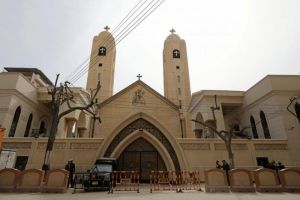American Robert Prevost elected first pope from US, will take name Leo XIV

Update: May 8 at 1:30 p.m. ET:
Cardinal Robert Prevost has been elected as the first leader of the Roman Catholic Church from the United States and will take the name Pope Leo XIV.
Cardinal Protodeacon Dominique Mamberti announced Robert Francis Cardinal Prevost as Pope Leo XIV to the crowd gathered in St. Peter's Square in the Vatican on Thursday evening, with some attendees waving American flags. The 69-year-old pontiff offered his first blessing at around 7:30 p.m. local time.
Born in Chicago, Prevost served as an American missionary in Peru and is a Peruvian citizen. He also led the Vatican’s office of bishops. He was not thought to be among the heavy favorites to emerge as pope coming into the papal conclave.
White smoke emanated from a chimney of the Sistine Chapel in the Vatican around 6 p.m. local time, indicating that a new pope had been chosen.
This is a developing story.
Original:
Black smoke rose from a Sistine Chapel chimney Thursday morning, indicating that the second ballot of the papal conclave that began on Wednesday has not produced a new pope.
The smoke appeared at around 11:50 a.m. local time at the Vatican in Rome, according to Vatican News, which notes that the cardinals broke for lunch and resumed around 2 p.m. Around 15,000 people were gathered in St. Peter’s Square for the announcement.
The smoke first emanated from the chimney starting at around 9 p.m. local time on Wednesday night after the first ballot. Around 45,000 people gathered for the first announcement.
"Our role here is to pray and to join with other Christians, other Catholics, to pray for the Holy Spirit to guide the whole process,” Deacon Nicholas Nkoronko from Tanzania told the official news portal of the Holy See.
The conclave is assembled to elect a new leader of the Roman Catholic Church following the death of Pope Francis at age 88 last month.
Over 133 cardinals from 70 countries entered the Sistine Chapel to be part of the conclave and swore secrecy about the deliberations.
Once a new pope is elected, white smoke will emanate from the chimney. Conclaves in the past have taken days, months or even years; the longest papal conclave lasted nearly three years from 1268 to 1271 following the death of Pope Clement IV.
The two most recent conclaves took multiple ballots for a pope to receive votes from two-thirds of the cardinals present, which is necessary to secure the position.
"Conclave" is Latin for "a room that can be locked," as the cardinals are "locked away in the Sistine Chapel" until a candidate for the papacy receives the support of two-thirds of the cardinals present.
A few cardinals are thought of as strong contenders to become the next pontiff. They include Cardinal Luis Tagle, Cardinal Matteo Zuppi, Cardinal Robert Sarah and Cardinal Pietro Parolin.



























